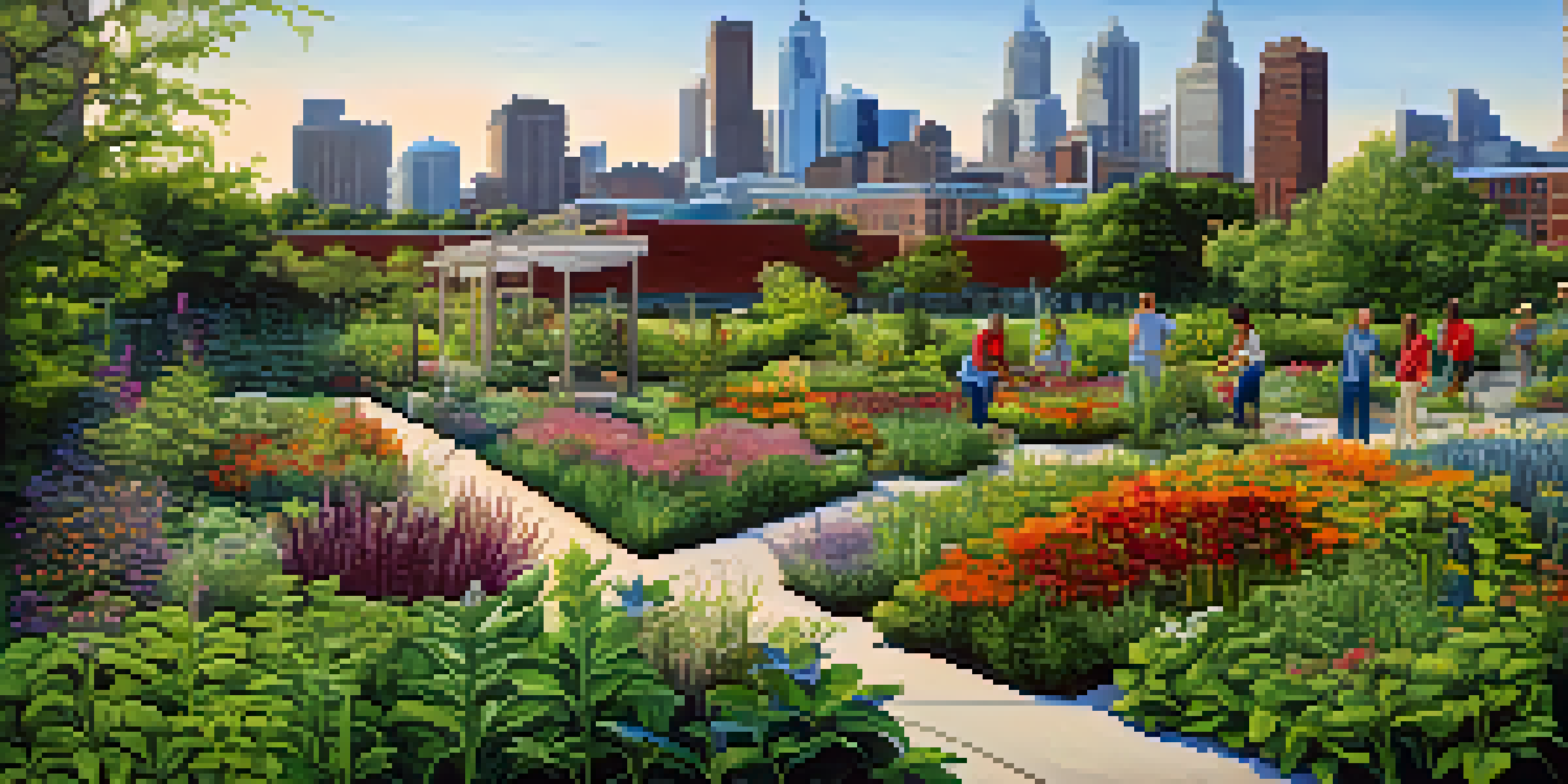The Role of Green Spaces in Detroit's Urban Biodiversity

Understanding Urban Biodiversity in Detroit
Urban biodiversity refers to the variety of life found in city environments, including plants, animals, and microorganisms. In Detroit, this concept is particularly important as it highlights the relationship between natural ecosystems and urban development. The city's unique blend of industrial heritage and green spaces fosters a diverse array of species that contribute to the overall health of the ecosystem.
The Importance of Green Spaces in Cities
Green spaces, such as parks and gardens, play a crucial role in urban areas by providing habitats for wildlife. These areas not only support biodiversity but also enhance the quality of life for residents. By offering recreational opportunities and natural beauty, green spaces can improve mental health and foster community engagement.
Urban Biodiversity in Detroit
Detroit's unique blend of industrial heritage and green spaces fosters diverse species that enhance the city's ecosystem.
Types of Green Spaces Found in Detroit
Detroit boasts a variety of green spaces, from large parks like Belle Isle to community gardens scattered throughout the neighborhoods. Each type of green space serves a unique purpose, whether it's providing a habitat for local birds or a gathering place for families. These areas can also include urban forests, green roofs, and greenways, all contributing to the city’s biodiversity.
How Green Spaces Support Local Wildlife
Green spaces are essential for supporting local wildlife populations, providing food, shelter, and breeding grounds. In Detroit, species such as songbirds, butterflies, and even small mammals thrive in these habitats. By creating a network of interconnected green spaces, we can help sustain these populations and encourage biodiversity within the city.
Green Spaces Boost Community Well-being
Parks and gardens not only support wildlife but also improve residents' quality of life through recreational and social opportunities.
Community Engagement and Green Spaces
Community involvement is vital in maintaining and enhancing green spaces. Residents who actively participate in gardening, clean-up events, and educational programs foster a sense of ownership and stewardship. This engagement not only improves the physical condition of these spaces but also strengthens community ties and raises awareness about the importance of urban biodiversity.
Challenges Facing Urban Green Spaces
Despite their benefits, green spaces in Detroit face various challenges, including pollution, invasive species, and urban development pressures. These issues can threaten the health of local ecosystems and reduce biodiversity. Addressing these challenges requires collaboration between the community, city planners, and environmental organizations to create effective solutions.
Challenges to Urban Green Spaces
Pollution, invasive species, and urban development threaten the health of green spaces, necessitating community and organizational collaboration.
The Future of Green Spaces in Detroit
The future of green spaces in Detroit looks promising, with ongoing initiatives aimed at enhancing urban biodiversity. Projects like tree planting campaigns and park renovations are designed to create more sustainable habitats for wildlife. As awareness grows about the value of these green spaces, there is potential for even greater community involvement and ecological restoration.
Conclusion: The Value of Green Spaces in Urban Biodiversity
In conclusion, green spaces are vital for supporting urban biodiversity in Detroit. They provide essential habitats for wildlife, enhance community well-being, and offer opportunities for environmental engagement. By prioritizing the preservation and enhancement of these areas, we can ensure a healthier, more vibrant city for future generations.